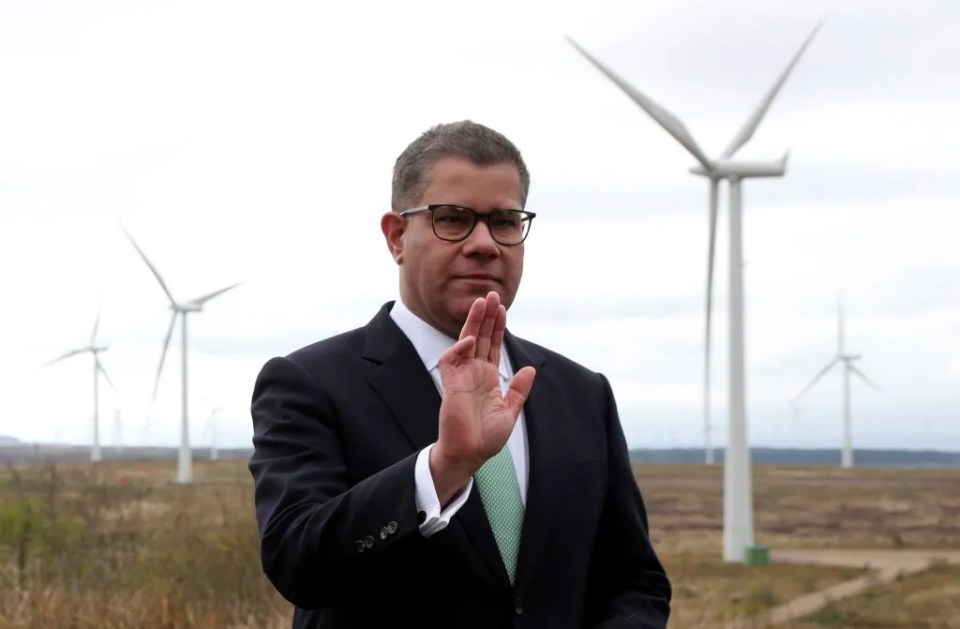Vote blue, go green? A climate takeover of the Conservatives is an unlikely feat

The eco-warriors among the Conservatives are a small but growing number, albeit not fast enough to turnaround an anti-green slant Rishi Sunak has implemented, writes Eliot Wilson.
If you could look at any facet of Zac Goldsmith in isolation, he would fit easily into the Tory taxonomy. The multimillionaire Old Etonian; scion of a distinguished Anglo-Irish Ascendancy family; a clubman and gambler, who co-founded the Fitzdares Club to give the pseudo-venerable bookmakers a physical home in Mayfair. If you combine all of those in one lanky frame, however, with a distinctive core of passionate, angst-ridden and sometimes hectoring environmentalism, then you are left with the more inscrutable figure of Lord Goldsmith of Richmond Park.
In June, Goldsmith resigned from his expansively titled post of Minister of State (Overseas Territories, Commonwealth, Energy, Climate and Environment) at the Foreign Office. He had held a global climate-related brief since the beginning of Boris Johnson’s premiership in 2019, and no-one could accuse him of being late to the party: his childhood heroes were David Attenborough and Gerald Durrell, and when he returned from a drearily predictable voyage of South Asia in his early 20s, he was appointed reviews editor of The Ecologist, the radical but high-minded journal founded by his uncle Teddy Goldsmith in 1970.
The cause of Goldsmith’s exit, which made less impact than he must have hoped, was Rishi Sunak’s waning commitment to tackling climate change. In a resignation letter which stinted neither on length nor on heroic language, Goldsmith detailed the UK’s environmental achievements and then declared himself “horrified” as “we have abandoned these commitments”. He mourned that “the UK has visibly stepped off the world stage”, switching to an unconventional second-person for the intended coup de grâce:
“The problem is not that the government is hostile to the environment, it is that you, our Prime Minister, are simply uninterested. That signal, or lack of it, has trickled down through Whitehall and caused a kind of paralysis.”
This is savage stuff. In another time, from another pen, such a personal and explicit attack might have wounded Sunak. But it was written only three weeks before the narrow and surprising Conservative win in the Uxbridge and South Ruislip by-election, at which a rejection of the ULEZ scheme to control emissions was believed to be the decisive factor. It was written in an atmosphere in the Conservative Party of increasing scepticism about the cost and even the efficacy of some of the government’s existing commitments, like spending £20bn on carbon capture and storage technology, phasing out new internal combustion engines in 2030 and achieving overall net-zero emissions by 2050.
Many in the Conservative Party believe these policies are, at best, aspirational poses which cannot survive cold financial reality. There is also a self-fulfilling prophecy that action to reduce emissions by the West is irrelevant if it is not matched by action by China and others. Since there is no prospect of China imposing such limits on itself, the West is let off guilt-free.
Goldsmith is not completely isolated. While many MPs are now cherishing David Cameron’s 2013 instruction to aides to “get rid of all the green crap”, Sir Alok Sharma, president of the UN COP26 from 2021 to 2022, wrote recently that “it would be self-defeating for any political party to seek to break the political consensus” on climate change. There is the Conservative Environment Network, chaired by Ben Goldsmith, Zac’s brother, but even its parliamentary champions, like Simon Clarke and Philip Dunne, are not exactly the type the Tory whips fear.
There are a number of overlapping games being played here. The numbers simply do not exist for a Tory environmentalist insurgency at Westminster, and even if they did, Goldsmith is not its El Comandante.
Instead, the strategy that Goldsmith, Sharma and others must adopt is an appeal to evidence, a high-wire act in British politics in 2023. A recent Opinium poll found that nearly two-thirds of 2019 Conservative voters intending to switch to Labour thought Sunak had “not gone far enough” on climate change, not that he had gone too far. That said, cutting back on net-zero and environmental pledges is about soothing an uneasy right, not broadening an electoral coalition, so these may prove to be the wrong facts.
For the moment, it seems that the sceptical wing has the momentum. The Ulez lesson is being gripped with white-knuckled fingers. The prime minister can be forgiven for thinking he might have found a secret weapon—but the idea that it is on the scale of Oppenheimer’s achievement is, as things stand, an exercise in nuclear-powered optimism.